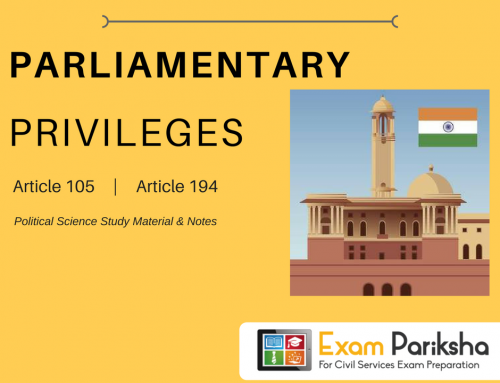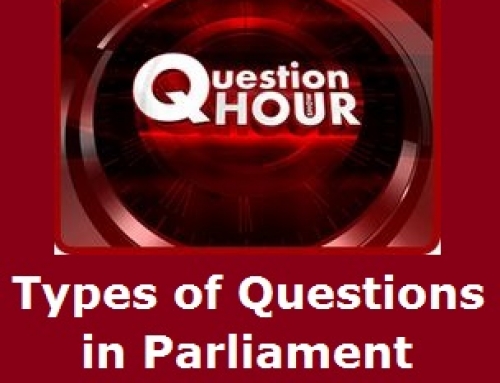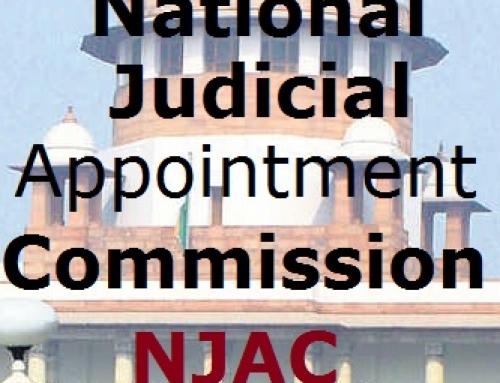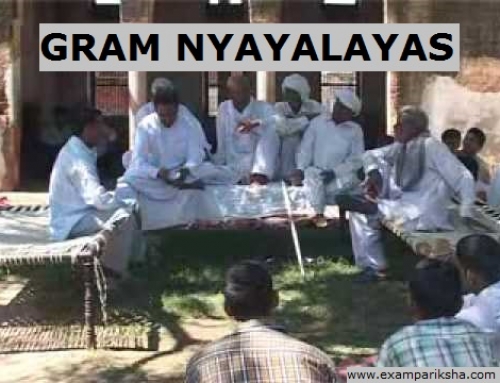Since Preamble forms an important part of Indian Constitution and a lot many questions are asked from this small and simple topic, we are providing a lucid explanation for quick reference. This will benefit aspirants of Civil services IAS mains, Essay paper, etc.
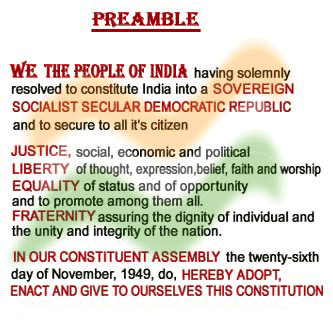
The Preamble is like an introduction of the Indian Constitution, it is not a part of the contents but it explains the purposes and objectives with which the document has been written. It provides the guide lines of the Constitution and explains the objectives of the Constitution in two ways:
- about the structure of the governance
- about the ideals to be achieved in independent India. Therefore, the Preamble is considered key of the Constitution.
The objectives laid down in the Preamble are:
- Description of Indian State as Sovereign, Socialist, Secular, Democratic Republic.(Socialist, Secular were added by 42nd Amendment, 1976).
- Provision to all the citizens of India of – A) Justice social, economic and political ; B) Liberty of thought, expression, belief, faith and worship ; C) Equality of status and opportunity ; D) Fraternity assuring dignity of the individual and unity and integrity of he nation.The struggle for freedom was not only against the British rule but their struggle was also for restoring the dignity of men and women, removal of poverty and end to all types of exploitation. Such strong motivations and cherished ideals had prompted the framers to lay emphasis on the provisions of Justice, Liberty and Equality to all the citizens of India.
Sovereignty
Sovereignty is one of the essential elements of any independent State. It means absolute independence, i.e., a government which is not controlled by any other power : internal or external. A country cannot have its own constitution without being sovereign. India is a sovereign country free from external control and can frame its policies. India is free to formulate its own foreign policy.
The word socialist was not there in the Preamble of the Constitution originally. In 1976, the 42nd Amendment to the Constitution included ‘Socialist’and ‘Secular’, in thePreamble.
Socialist
The word ‘Socialism’ had been used in the context of economic planning. It also means commitment to attain ideals like removalof inequalities, provision of minimum basic necessities to all, equal pay for equal work. This plays a major role in the economy.
These ideals have been incorporated and implemented in the Constitution by the means of the Directive Principles of the State Policy.
Secularism
Secularism in India is unique to the country, it is said that ‘India is neither religious, nor irreligious nor anti-religious.’ Now what does this means? It means that in India there will be no ‘State’ religion – the ‘State’ will not support any particular religion out of public fund. This has two implications :
- Every individual is free to believe in, and practice, any religion he/she belongs to,
- SSate will not discriminate against any individual or group on the basis of religion.
Democratic Republic
The Democratic principles of the country flow from reading of the last line of the Preamble. Democracy is generally known as government of the people, by the people and for the people. Effectively this means that the Government is elected by the people, it is responsible and accountable to
the people. The democratic principles are highlighted with the provisions of universal adult franchise, elections, fundamental rights, and responsible government.
The Preamble also declares India as a Republic which means that the head of the State is the President who is indirectly elected and he is not a hereditary ruler as in case of the British Monarch.
Justice
Justice promises to give people what they are entitled to in terms of basic rights to food,clothing, housing, participation in the decision-making and living with dignity as human beings. The Preamble covers all these dimensions of justice – social, economic and political.
Besides, the granting of political justice in the form of universal adult franchise or the representative form of democracy. Socio-economic justice is to be achieved through directed policies and their effective implementation.
Liberty
The Preamble mentions about liberty of thought and expression. These freedoms have been guaranteed in the Constitution through the fundamental Rights. Certain directives to the State have been mentioned in the Directive Principles in this regard.
Equality
Equality is considered to be the essence of modern democratic ideology.The Constitution makers placed the ideals of equality in a place of pride in the Preamble. All kinds of inequality based on the concept of rulers and the ruled or on the basis of caste and gender,were to be eliminated. All citizens of India should be treated equally and extended equal protection of law without any discrimination based on caste, creed, birth, religion, sex etc.
Similarly equality of opportunities implies that regardless of the socio-economic situations into which one is born, he/she will have the same chance as everybody else to develop his/her talents and choose means of livelihood.
Fraternity
With the background of India’s multi-lingual, multi-cultural and multi- religious society and keeping the partition of the country in view, the framers of the Constitution were much concerned about the unity and integrity of our newly independent country.There was a need for harmonious coexistence of various religions, linguistic, cultural and economic groups. Inclusion of phrases like ‘dignity of individuals’, ‘fraternity among people’and ‘unity and integrity of the nation’ in the Preamble highlight such a need.
All these ideals were considered important for achieving an egalitarian society in our country. The framers believed that an egalitarian society which feels concerned for meeting the needs of all its members will be crucial for developing a prosperous nation.


